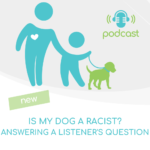Is Eating Dog Illegal
Eating dog meat has been a controversial topic for years, raising questions about animal rights and cultural differences. The legality of eating dog meat varies from country to country and even within different regions of the same country. In this article, we will explore the question “Is eating dog illegal?” in-depth and provide insights into the cultural, ethical, and legal implications of consuming dog meat.
The Cultural Significance of Eating Dog Meat
The consumption of dog meat dates back to ancient times when dogs were used as a source of food by many cultures worldwide. In some countries like China, Korea, Vietnam, and Nigeria, dog meat is considered a delicacy and is often consumed during festivals or special occasions.
While it may seem unacceptable to many people in Western countries, it’s important to understand that eating dog meat is deeply ingrained in certain cultures. It’s not just about satisfying hunger; it’s also about preserving their heritage and traditions.
Ethical Implications
Despite having cultural significance, there are still ethical implications surrounding the consumption of dog meat. Many animal rights activists argue that dogs are sentient beings capable of feeling pain and suffering, just like humans. They believe that killing dogs for food is cruel and unnecessary.
Moreover, there are concerns about the conditions in which these animals are kept before being slaughtered. In some cases, dogs are stolen from their owners or bred specifically for consumption in small cages with poor sanitation and little ventilation.
Legal Implications
As mentioned earlier, the legality of eating dog meat varies widely across different countries and regions. In some countries like India and Brazil, it’s illegal to slaughter dogs for any purpose, including consumption. While in other countries such as China and South Korea, there are no specific laws regulating the practice of selling or consuming dog meat.
In many cases where it is not explicitly banned, local authorities may still enforce restrictions on the sale or consumption of dog meat due to public health concerns or opposition from animal rights groups.
The Health Risks of Eating Dog Meat
Apart from cultural, ethical, and legal implications, there are also health risks associated with consuming dog meat. Dogs can carry various diseases that can be transmitted to humans, such as rabies and Salmonella.
Additionally, dogs that are bred for consumption are often fed a diet consisting of waste or contaminated food, making them more susceptible to disease and infection. The lack of regulations surrounding the consumption of dog meat also means that there may be no quality control measures in place to ensure the safety of the meat.
Conclusion
In conclusion, the legality of eating dog meat is a complex issue with cultural, ethical, legal, and health implications. While it may be acceptable in some cultures, it’s important to consider the welfare of animals and public health concerns when making decisions about what we consume.
As individuals, we have the power to make informed choices about what we eat and support initiatives that promote animal welfare and responsible farming practices. By doing so, we can ensure a sustainable future for both humans and animals alike.



